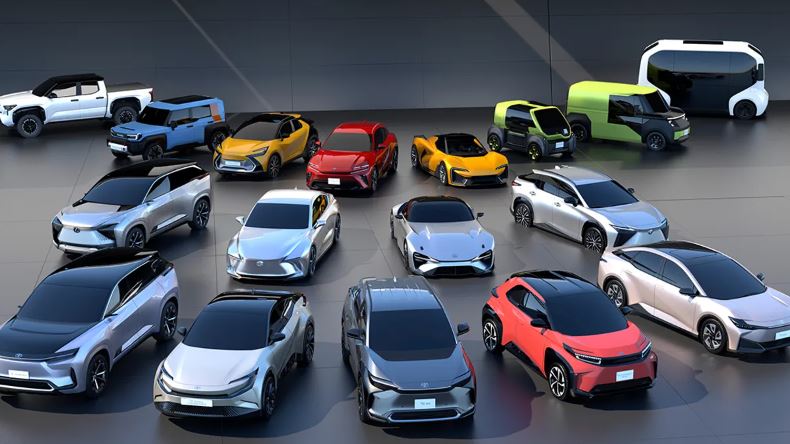At the Toyota Technical Workshop in Japan, the focus was on the advancements in battery electric vehicle (BEV) hardware and software. A significant announcement was made regarding the introduction of Toyota’s next-generation BEV operating system (OS) called Arene OS, which aims to enhance automotive intelligence and elevate the overall customer experience. The company had previously revealed plans to deploy this OS in their vehicles by 2025.
Arene OS is expected to have control over more than 200 vehicle systems; however, the exact launch date remains uncertain. One of the notable features of the OS is its advanced speech recognition capability, which utilizes artificial intelligence (AI) to provide quick responses tailored to individual preferences and offer personalized suggestions. Toyota’s designers are leveraging AI technology to expedite product development processes.
The most intriguing aspect of Arene OS is its ability to customize the “driving feel” of the BEVs. Toyota claims that the hardware and software of their BEVs can be modified to replicate the experience of manual gearbox driving, including drive control and clutch capabilities. This innovation allows BEV drivers to enjoy the exhilaration and engagement traditionally associated with manual transmissions.
In line with this focus on driving experience, Lexus, a division of Toyota, showcased a research prototype of a fully electric UX 300e with a “manual transmission” last year. Furthermore, at this year’s Tokyo Auto Salon, the AE86 EV, an electric vehicle equipped with a manual transmission and clutch, was featured.
Beyond altering the driving experience, the Arene OS offers additional functionalities. It has the ability to modify engine sound and electric powertrain response, providing drivers with a customizable and immersive driving environment. The integration of steer-by-wire technology has made it possible to incorporate a yoke steering wheel in vehicles such as the Lexus RZ.
Toyota also emphasized the importance of connectivity and infrastructure. They revealed plans to connect their vehicles to an appropriate infrastructure network to provide real-time traffic information, enhancing the navigation experience for drivers. Additionally, the implementation of E-TOSS software aids logistics organizations in optimizing delivery planning and tracking.
Moreover, the cars equipped with Arene OS have the capability to automatically generate map data, enabling the daily updating of 3D maps. This frequent map update ensures that vehicles have access to the most current and accurate information for route planning, resulting in safer, more enjoyable, and fuel/electricity-efficient trips. Geolocation technology further enhances functionalities like “smart parking” and contributes to the overall safety of both manned and unmanned vehicles.
The discussions at the Toyota Technical Workshop highlighted the company’s commitment to advancing the capabilities of BEVs through innovative hardware and software solutions, with a focus on providing a customizable and enhanced driving experience while leveraging connectivity and AI-driven technologies.

